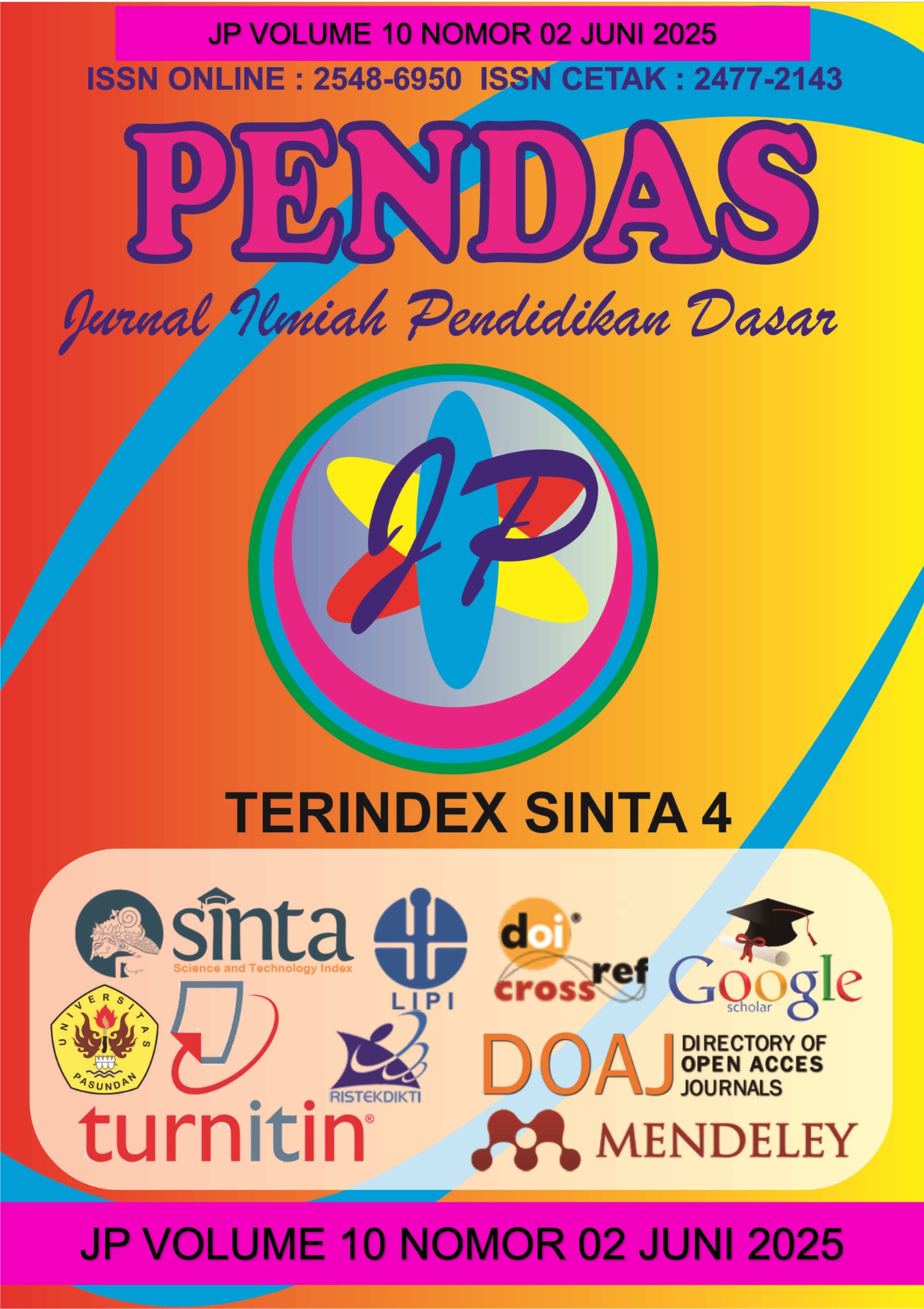RELEVANSI METODE PENDIDIKAN DALAM HADIS TARBAWI TERHADAP PRAKTIK PENDIDIKAN KONTEMPORER
DOI:
https://doi.org/10.23969/jp.v10i02.24579Keywords:
Tarbawi Hadith, Islamic Educational Methods, Contemporary EducationAbstract
The tarbawi hadiths are a collection of teachings of the Prophet Muhammad that are directly related to the principles and methods of education. This study aims to analyze the relevance of educational methods in tarbawi hadith to contemporary educational practices. The methods of uswah (exemplary), targhib-tarhib (motivation and warning), and hiwar (discussion) are the main pedagogical approaches explored in this study. This research uses a library research method with a qualitative approach and thematic analysis. Data were obtained from various scientific literatures that discuss tarbawi traditions as well as major hadith sources such as Sahih Bukhari and Sahih Muslim. The results of the study show that the three methods have a strong alignment with the principles of modern education such as active learning, character education, and the role of the teacher as a role model. Thematic analysis of the tarbawi traditions reveals that the Prophet's method is highly adaptive, communicative, and forms the foundation of value-based learning. However, the integration of this method in the current educational context is faced with internal challenges, such as the lack of educators' understanding of tarbawi hadith, as well as external challenges in the form of the influence of globalization and digital technology. On the other hand, opportunities for integration remain open through strengthening the curriculum, training teachers, and utilizing technology as an educational tool. With the right implementation strategy, the Prophet's educational methods can enrich today's educational practices, forming a generation that is intellectually intelligent as well as spiritually and morally strong.
Downloads
References
Arsyad, J., Yuslem, N., & Sakinah, A. (2023). Relevansi Metode Pendidikan Islam Dalam Kitab Hadis Al-Arba’in An-Nawawī Dengan Metode Pendidikan Masa Kini. Munaddhomah: Jurnal Manajemen Pendidikan Islam, 4(1), 155–164. https://doi.org/10.31538/munaddhomah.v4i1.332
Hernawati, H., & Mulyani, D. (2023). Tantangan dan Peluang Pendidikan Islam dalam menyiapkan Generasi Tangguh di Era 5.0. Al-Fikri: Jurnal Studi Dan Penelitian Pendidikan Islam, 6(1), 1. https://doi.org/10.30659/jspi.6.1.1-17
Hidayah, N., & Khotimah, K. (2021). Analisis Hadist Tarbawy Tentang Materi Pembelajaran Agama Islam (Kajian Hadist Kontemporer). DINAMIKA : Jurnal Kajian Pendidikan Dan Keislaman, 6(1), 91–102. https://doi.org/10.32764/dinamika.v6i1.1591
Hidayat, F., Dalimunthe, A. W., Rambe, S. A. B., Hafiz, M., & Julaiha, J. (2024). Metode Pendidikan Berdasarkan Hadits Rasulullah SAW. Counselia; Jurnal Bimbingan Konseling Pendidikan Islam, 5(1), 71–83. https://doi.org/10.31943/counselia.v5i1.151
Iskandar, R. (2024). Penerapan Metode Pembelajaran Aktif dalam Pembelajaran Pendidikan Islam. Journal of Multidisciplinary Inquiry in Science, Technology and Educational Research, 1(4), 2055–2060.
Nafiah, D. A., Hamidah, F., Mufidah, S., & Aisy, S. R. (2024). Tinjauan Metode Active Learning Dalam Pembelajaran Pendidikan Agama Islam. 2, 187–198.
Nazir, M. (2014). Metode Penelitian. Ghalia Indonesia.
Rahmat, M., & Somad, M. A. (2016). Studi Model Pembelajaran Targhib-Tarhib dalam Perkuliahan PAI untuk Pembinaan Karakter Anti Korupsi pada Mahasiswa. Jurnal Pendidikan Agama Islam, 14(2), 127–138.
Rizki, A. M., & Lessy, Z. (2024). Pendidikan Islam dalam Perspektif Hadist Tarbawi. JIIP - Jurnal Ilmiah Ilmu Pendidikan, 7(6), 5298–5302. https://doi.org/10.54371/jiip.v7i6.4476
Suhandi, S. (2022). Hadits Tentang Metode Pendidikan dan Karakteristiknya. Jurnal Penelitian Tarbawi: Pendidikan Islam Dan Isu-Isu Sosial, 7(1), 80–91. https://doi.org/10.37216/tarbawi.v7i1.512
Tamjidnoor. (2022). Edukatif : Jurnal Ilmu Pendidikan Pendidikan Islam dalam Perspektif Hadis. Jurnal Ilmu Pendiidikan, 4(6), 7397–7402.
Zed, M. (2008). Metode Penelitian Kepustakaan. Yayasan Obor Indonesia.
Downloads
Published
Issue
Section
License
Copyright (c) 2025 Pendas : Jurnal Ilmiah Pendidikan Dasar

This work is licensed under a Creative Commons Attribution 4.0 International License.














































